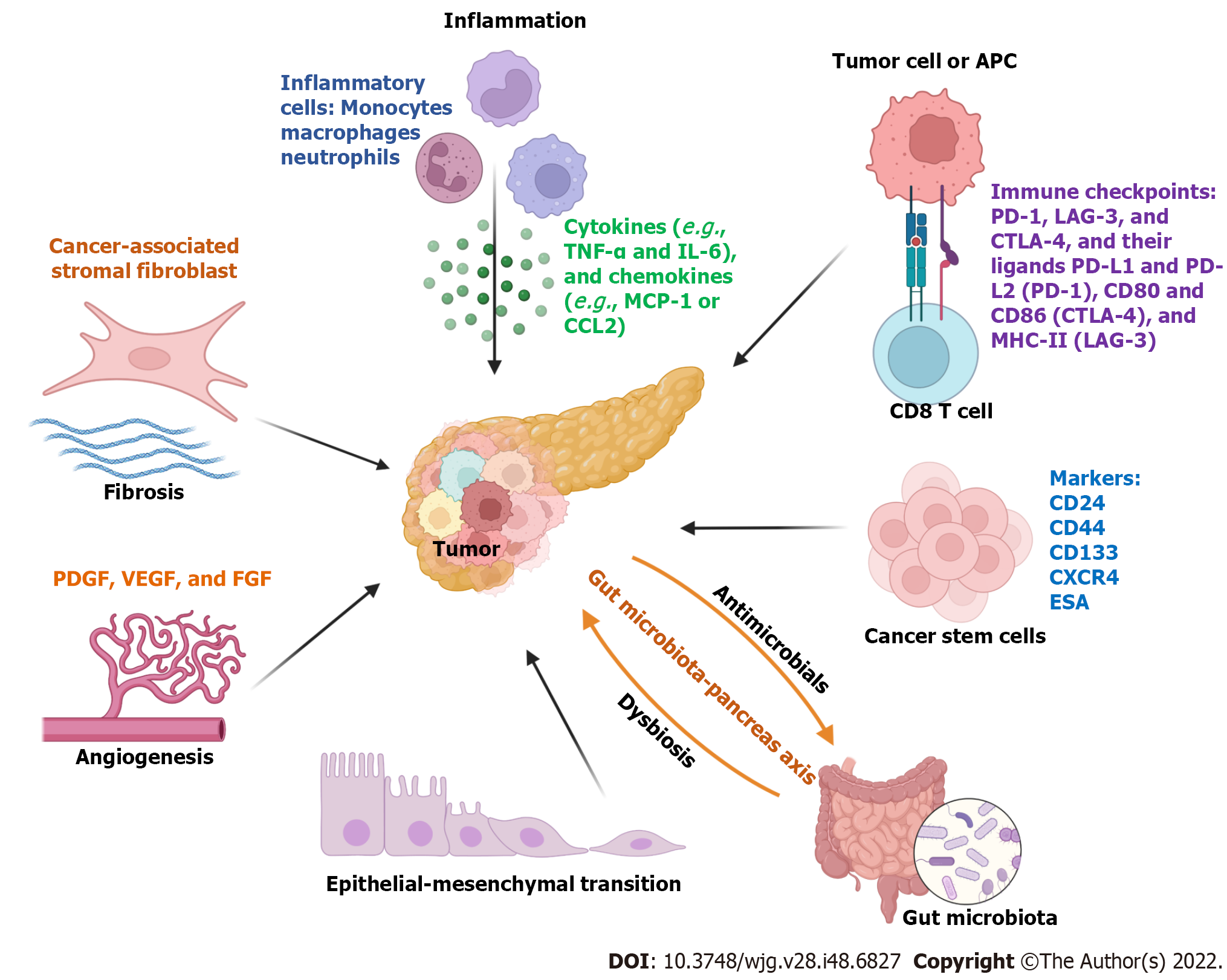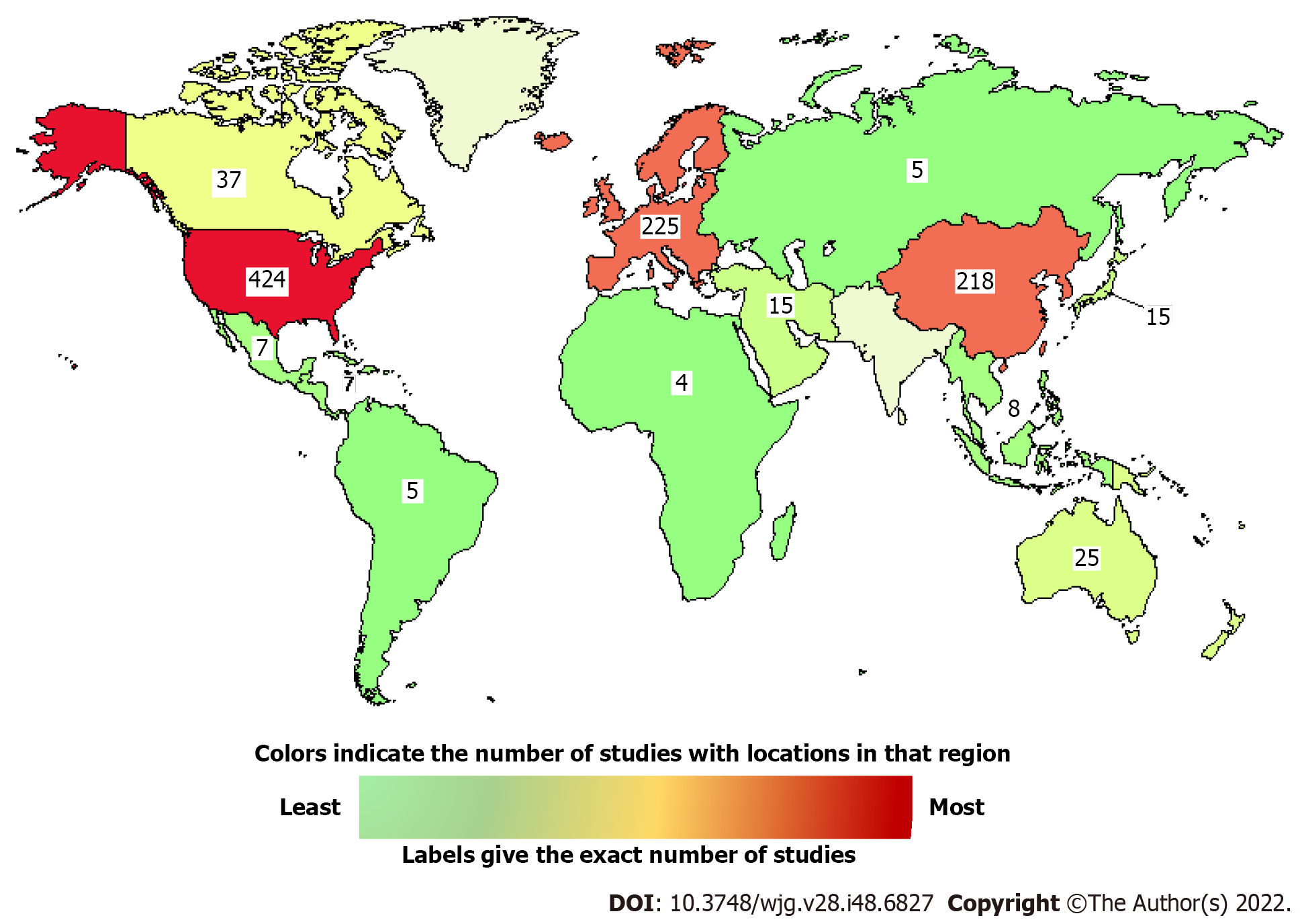©The Author(s) 2022.
World J Gastroenterol. Dec 28, 2022; 28(48): 6827-6845
Published online Dec 28, 2022. doi: 10.3748/wjg.v28.i48.6827
Published online Dec 28, 2022. doi: 10.3748/wjg.v28.i48.6827
Figure 1 Many factors are involved in pancreatic cancer initiation and progression.
Many factors contribute to pancreatic cancer initiation and progression, including inflammation, fibrosis, angiogenesis, dysbiosis of gut microbiota, cancer stem cells, and immune suppressive tumor microenvironment. APC: Antigen-presenting cells; CTLA-4: Cytotoxic T-lymphocyte-associated antigen 4; CXCR: C-X-C chemokine receptor; ESA: Epithelial-specific antigen; FGF: Fibroblast growth factor; IL: Interleukin; LAG-3: Lymphocyte-activation gene 3; MCP-1: Monocyte chemoattractive protein-1; MHC: Major histocompatibility complex; PD-1: Programmed cell death protein 1; PD-L1: Programmed death-ligand 1; PDGF: Platelet-derived growth factor; TNF-α: Tumor necrosis factor alpha; VEGF: Vascular endothelial growth factor. All cartoons in this figure were prepared using Biorender (https://biorender.com).
Figure 2 Recruiting studies for pancreatic cancer at different locations in the world.
The studies are in Africa (4), South America (5), Europe (225), the Middle East (15), the United States (424), Canada (37), Mexico (7), Pacifica (25), Japan (15), East Asia (218), North Asia (5), and Southeast Asia (8).
- Citation: Zhang CY, Liu S, Yang M. Clinical diagnosis and management of pancreatic cancer: Markers, molecular mechanisms, and treatment options. World J Gastroenterol 2022; 28(48): 6827-6845
- URL: https://www.wjgnet.com/1007-9327/full/v28/i48/6827.htm
- DOI: https://dx.doi.org/10.3748/wjg.v28.i48.6827














